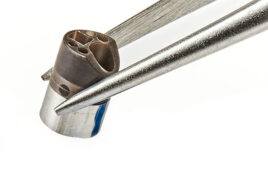AWAK Technologies (AWAK), a medical technology company focused on dialysis using regeneration technology for end-stage renal disease, announced positive preliminary results from a recently completed Phase I study investigating the safety of AWAK PD in dialysis treatment for patients with End Stage Renal Disease (ESRD) led by the Singapore General Hospital (SGH).
The AWAK PD is a wearable and ultra-portable peritoneal dialysis (PD) system that incorporates AWAK’s patented sorbent technology to disrupt the way in which peritoneal dialysis is currently administered. The AWAK PD is a compact device that weighs less than 2 kg and enables dialysis to be performed “on-the-go”, overcoming the challenge of long hours of therapy and connection to large-size dialysis machines in hospitals and clinics currently faced by renal patients.
The sorbent technology regenerates and reconstitutes used dialysis fluid into fresh fluid while removing the uremic toxins from the spent dialysate. The AWAK PD device requires between 1.5 and 2 litres of dialysate to perform a patient’s entire daily therapy, compared with 8 to 12 litres required by traditional PD methods.
Conducted at SGH, the single-arm pilot study enrolled 15 adults between the ages of 21 and 80 undergoing regular PD treatment. Each patient had to complete 9 dialysis sessions of 3.5 hours each with AWAK PD over three continuous days.
Preliminary results show that AWAK PD was able to efficiently remove the accumulation of waste substances from the body. Patients also did not experience any serious adverse events during dialysis with AWAK PD.
The full results from the trial are being analysed and will be announced in first half of 2019.
“The number of patients with end-stage renal disease continues to climb globally, largely due to diabetes. For these patients, transplantation is the best treatment but most are on dialysis to stay alive due to the scarcity of organs. Dialysis, however, can cause much disruption to their lives. Some have even had to stop work, resulting in a loss of income,” said Dr Marjorie Foo, Principal Investigator of the AWAK PD first in human trial. “We are therefore heartened by the favourable results of our Phase I trial. The wearable dialysis system has the potential to not only revolutionise how peritoneal dialysis can be delivered, it also gives patients the option of ‘dialyse to live’ and not ‘live to dialyse’. This is as close as one can get to an artificial organ performing the functions of the kidney. A hospital-industry collaboration such as this is key to advancing patient care.”




